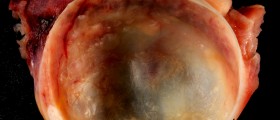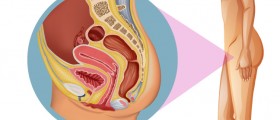
Menopause after hysterectomy
Radical hysterectomy is a surgical procedure in which the surgeon removes the uterus, fallopian tubes and both ovaries. It is most commonly performed in women who are suffering from certain gynecological malignancies such as, cervical or ovarian cancer. Other type of hysterectomy called partial hysterectomy may be performed in women who deal with severe form of endometriosis, fibroids and persistent bleeding.
The symptoms of menopause, both regular and surgically induced, are connected to insufficient production of certain hormones. The ovaries either cease with their function or they are surgically removed and this is what causes hormonal imbalance.
Menopause and Partial Hysterectomy
Women who undergo partial hysterectomy can have normal perimenopause and menopause. The only problem is to determine when it will actually start. Still this information cannot be given to women who have not been operated either. In partial hysterectomy only the uterus is removed and the rest of female genital organs are preserved, including ovaries. Ovaries continue with the production of hormones and women eventually enter menopause.
Menopause and Radical Hysterectomy
After radical hysterectomy both ovaries are removed together with the uterus and cervix and the woman actually enters menopause right after the surgery. There is no introduction to menopause as it happens in women who have not been operated. So in women who have undergone radical hysterectomy there is no perimenopause.
The symptoms of menopause after radical hysterectomy are actually the same as if the woman was not operated. Hot flashes typically occur. They last approximately 30 seconds to several minutes. These women are more susceptible to urinary infections and urinary incontinence. They are also prone to obesity and loss of muscle mass. Additional symptoms include night sweats, problems with sleeping and fatigue. Mental changes may also occur and they include anxiety, depression and mood swings. Women in menopause have low level of libido and sex drive. And finally, imbalance of female hormones increases the risk of osteoporosis.
Generally, women in menopause go through physiological, emotional and psychosocial changes. Some of them cope with these changes successfully while others cannot. They need to adjust to all the changes in their bodies and it can be rather difficult. Hysterectomy may additionally endanger woman's confidence and cause even greater problems. This is why some of these women require support of their families, gynecologists and sometimes even psychologists. Social interactions are of great importance and all menopausal women should know that menopause does not mean the end of the life but only the beginning of the rest of their lives.

















Your thoughts on this
Loading...